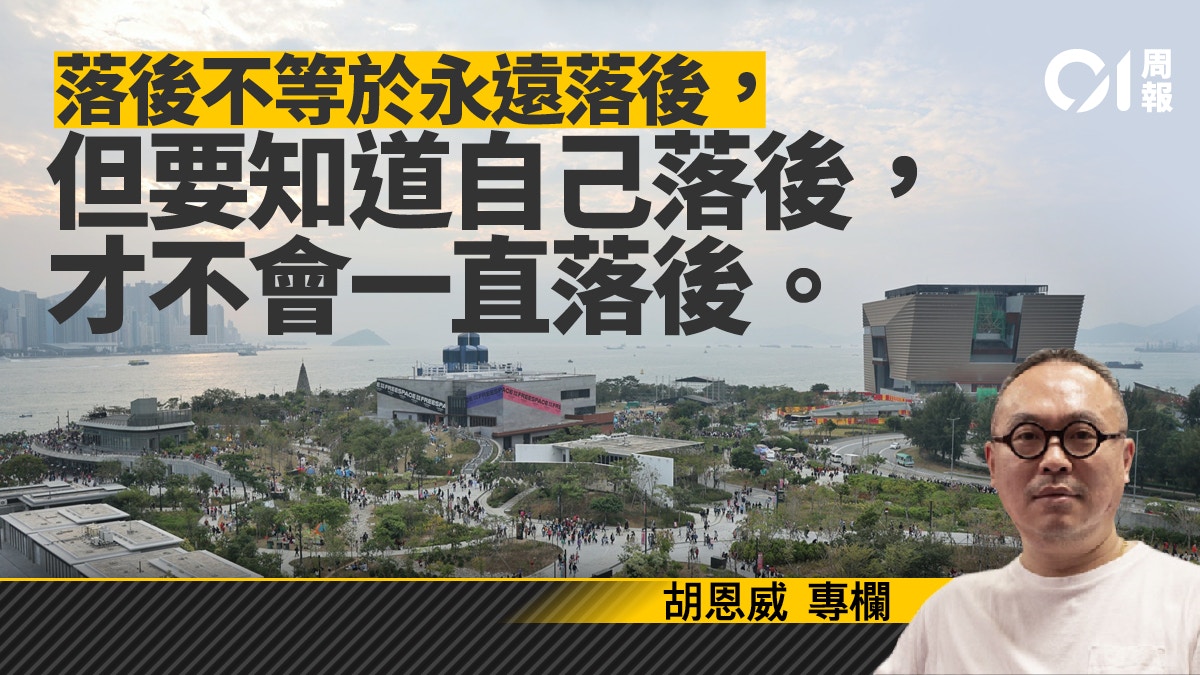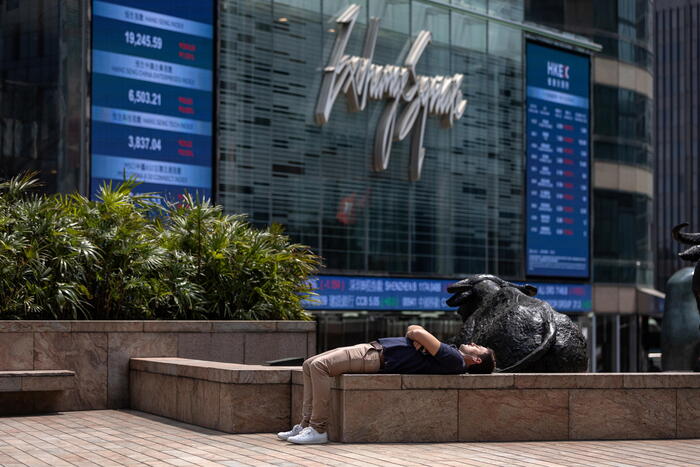What has changed since the 25th anniversary of Hong Kong's return to China?
The most obvious is that Hong Kong has changed from a cultural system that combines Chinese and Western cultures, and has become a Western formalism.
The architectural design of the HSBC Head Office was the most advanced in the world in the 1980s, and it was another architectural breakthrough after the Pompidou Center; the Bank of China Building combines traditional Chinese architectural concepts with Western architectural techniques, and has become an architectural model that combines Chinese and Western architecture.
However, the architectural style model of the entire West Kowloon Cultural District today is basically dominated by Western architects, but the result is stuck in the architectural model of twenty-five years ago: M+ seems to be the A design of Tate Modern in London; Xiqu Center is more Strangely enough, it is a purely Western theatre designed not at all according to the sonic nature of Chinese opera music.
Today, the architectural style model of the entire West Kowloon Cultural District is basically dominated by Western architects, but the result is stuck in the architectural model of twenty-five years ago: M+ seems to be the A-design of Tate Modern in London.
(file picture)
Why is Hong Kong caught in the dilemma of neither China nor West?
Because the Hong Kong bureaucracy continued the backward Western model, maintaining the formalism of filling in forms and boxes.
On the other hand, Singapore, in the past 25 years, has worked hard to absorb the most advanced management, design, and technology from the West to become an international system that can dialogue with the West on an equal footing.
For example, in terms of academics, Hong Kong only follows the practice of several international ranking agencies in the United Kingdom and the United States, and these international ranking agencies have many commercial and economic interests behind them.
This Anglo-American hegemony does not matter at all in other non-English systems.
The vast majority of Japanese universities do not pay attention to international rankings. Their goal is to create jobs, create human resources, and provide them to Japanese companies and industries.
The success of Japan's I&T and industry is because they have talents.
Why can't Hong Kong, like Singapore, absorb the most advanced planning and urban management models from the West?
Why has the mainland rushed to catch up and caught up with the West in the past 25 years, and has been on a par with the United Kingdom and the United States in terms of technology, while Hong Kong has fallen behind?
As the next twenty-five years approach, how should Hong Kong put things right?
The West Kowloon Cultural District is certainly a good demonstration unit, but can it change the current pattern dominated by the backward Western model?
What direction should the museum of the future take?
Are you only going in the direction of physical purchases?
In the new digital world, how can art technology be applied?
The above issues are all things that Hong Kong needs to think about.
There is a Cantonese slang saying: "Late come first come ashore." Hong Kong needs to deal with and adapt to the backward situation, absorb the experience of modernization and innovation in South Korea, Taiwan, Singapore and other places, learn the lessons of failure, and teach Hong Kong for the next twenty-five years. A blueprint for the year.
Moreover, not only the government, but also large enterprises in Hong Kong should think about this issue.
Many Hong Kong companies have investments in Singapore.
They have access to high-level officials, so they can understand the difference between Hong Kong and Singapore.
How to adjust and adjust?
How can we make this home better?
Whether it is in the East or the West, as long as the society can develop better and people's lives can be happier, the Hong Kong government should learn from it and introduce it.
(file picture)
We must face the reality of Hong Kong's backwardness, so that we can change the reality of Hong Kong's backwardness without shame, humility and pragmatism.
Falling behind does not mean falling behind forever, but you must know that you are behind so that you will not fall behind all the time.
The saddest thing is that it is still stuck in the glorious days of the 1990s, thinking that Hong Kong people are the former Hong Kong people. This is the saddest and the most backward.
Deng Xiaoping said, "It doesn't matter whether it's a black cat or a white cat, a cat that catches mice is a good cat." I believe Hong Kong has always believed in this concept.
Therefore, whether in the East or the West, as long as the society can develop better and people's lives can be happier, the Hong Kong government should learn from it and introduce it, instead of relying monolithically on a very rigid management system, bidding system and governance system.
Only in this way can we truly resolve the deep-seated contradictions in Hong Kong.
Hu Enwei
is a member of the National Hong Kong and Macao Research Association, a member of the Jiangsu Provincial Political Consultative Conference, and Zuni.
Icosahedron United Artistic Director and Chief Executive Officer
(The article is purely the author's opinion and does not represent the position of Hong Kong 01.)





/cloudfront-eu-central-1.images.arcpublishing.com/prisa/3I74UEXLYRBBRPGPSGWNN6WXH4.jpg)

